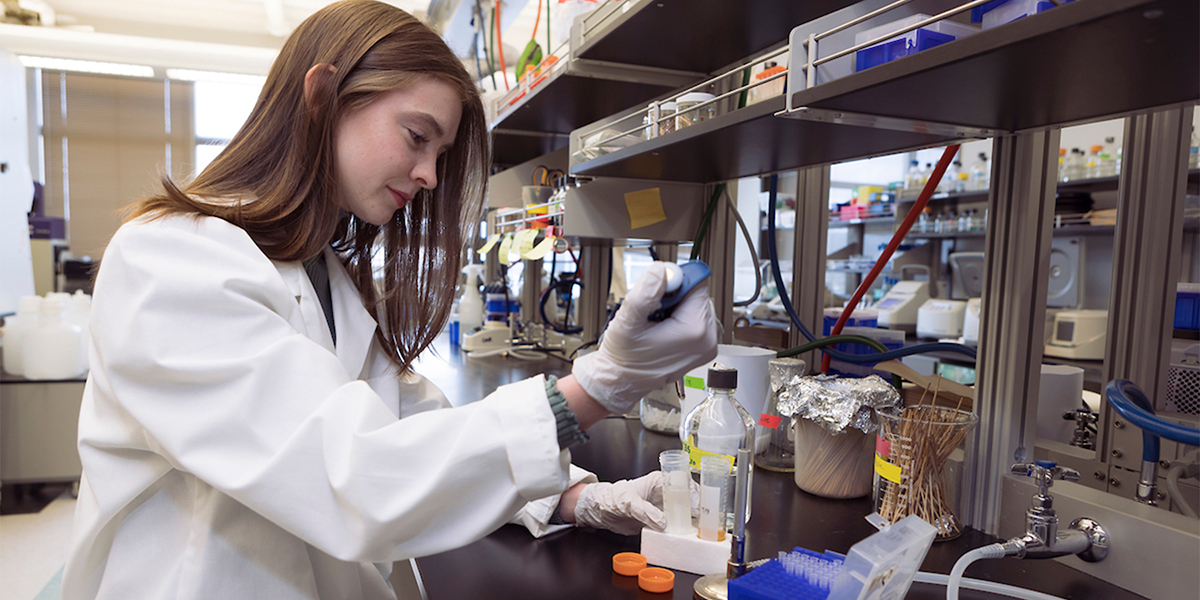Future doctor finds passion for research
Undergraduate Eliza Klos has already crafted a sturdy foundation to flourish as a physician.

Undergraduate Eliza Klos has already crafted a sturdy foundation to flourish as a physician.
One of Klos’ first pivotal steps when she got to Binghamton University was declaring a major in neuroscience — an interesting choice for a pre-health student. Klos said she sought a concentration that would allow her to learn about people holistically.
“I wanted something that was going to be different,” says Klos, a member of the class of 2024. “I like that (neuroscience) is interdisciplinary and it involves more than just biology. It has more of a human-basis so it’s been a really good fit for me so far.”
The next step Klos took was getting involved in research early — even before getting into college. Klos grew up in Buffalo, which is where she discovered her passion for helping others. Through a high school summer program at the Roswell Park Comprehensive Cancer Institute, Klos was able to gain her first taste of what it would mean to be a physician and a researcher. She was given an independent project where she examined a type of cancer called mantle cell lymphoma, which targets the lymphatic system.
“The summer before my senior year, I worked in a lymphoma and myeloma cancer research lab,” Klos recalls. “My research focused on examining a potential mechanism for resistance of the cancer to chemotherapy drugs. If the pathway can be discovered, it could be targeted with drugs, hopefully eliminating the problem of resistance.”
As a First-year Research Immersion Program (FRI) participant and a member of Binghamton University’s Scholars Program, Klos has had plenty of research experiences since then. For FRI, her project focused on creating a novel model of the effect coronavirus-related stress had on children. Their chosen schematic? Rats.
“This was the first time this project was done in the neuroscience stream,” Klos says. “Really we were trying to find a way to model what that kind of stress that came for kids during the time of COVID-19 would look like in rats. So that involved socially isolating the rats for short periods of time and then analyzing both their behavior and their neurochemistry.”
Read more about Klos’ path as a researcher in Discover-e.
